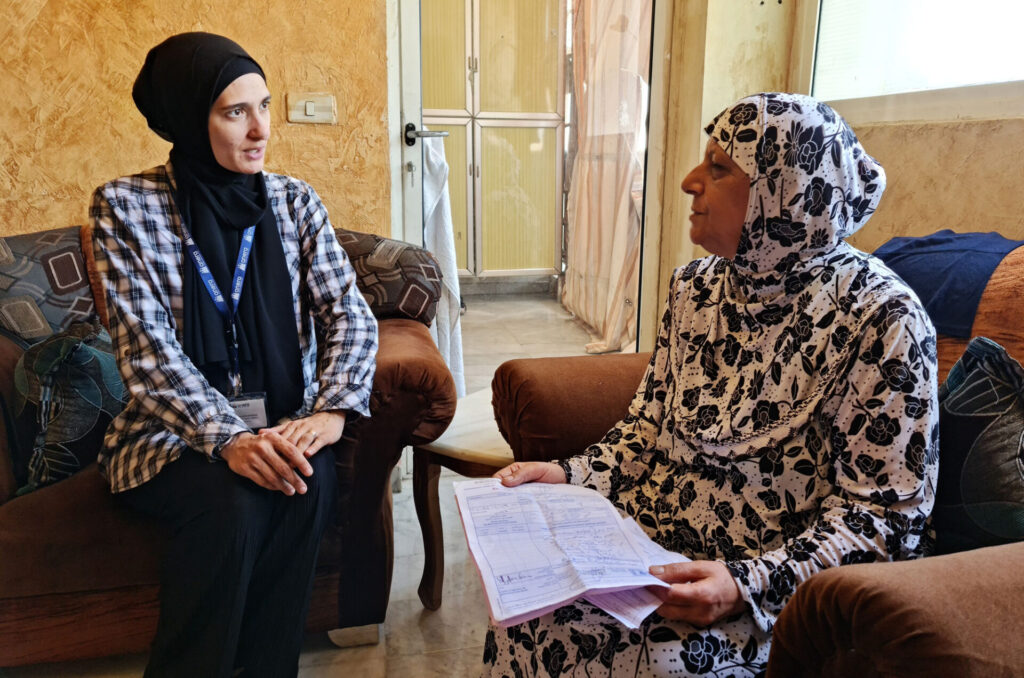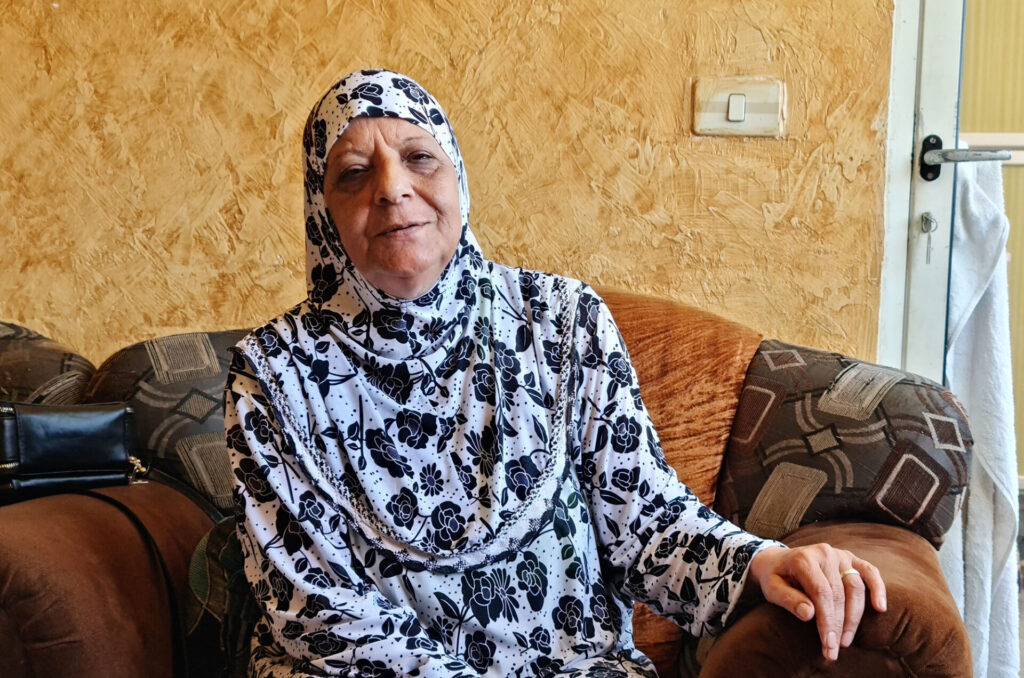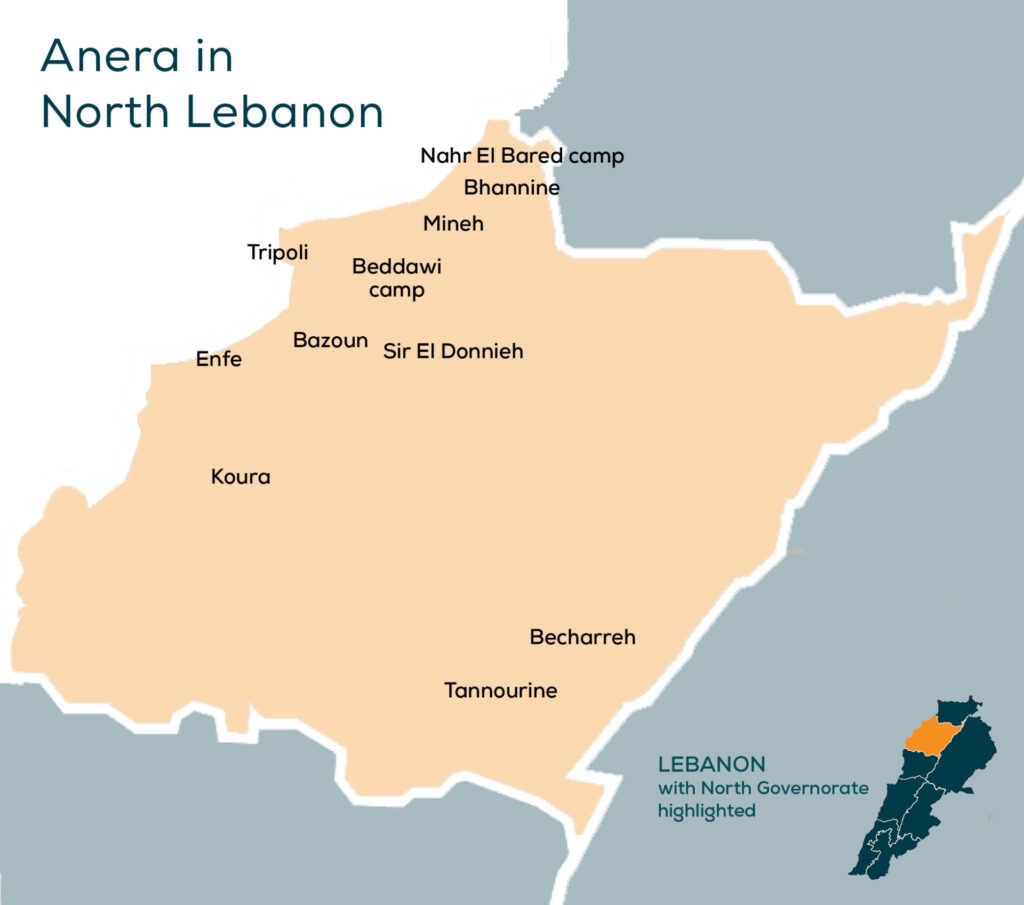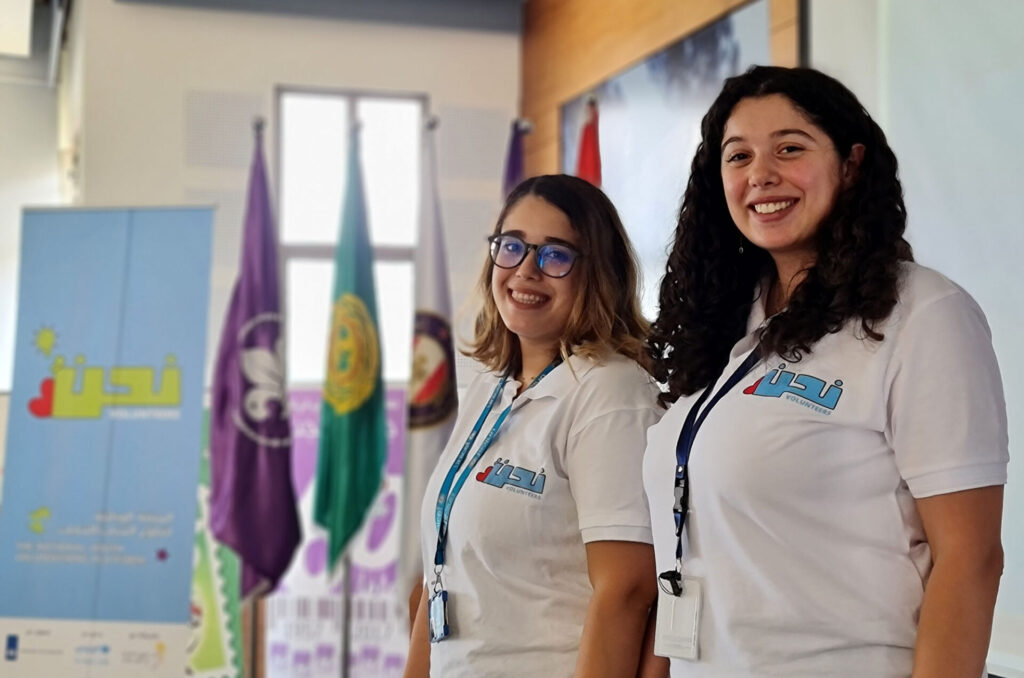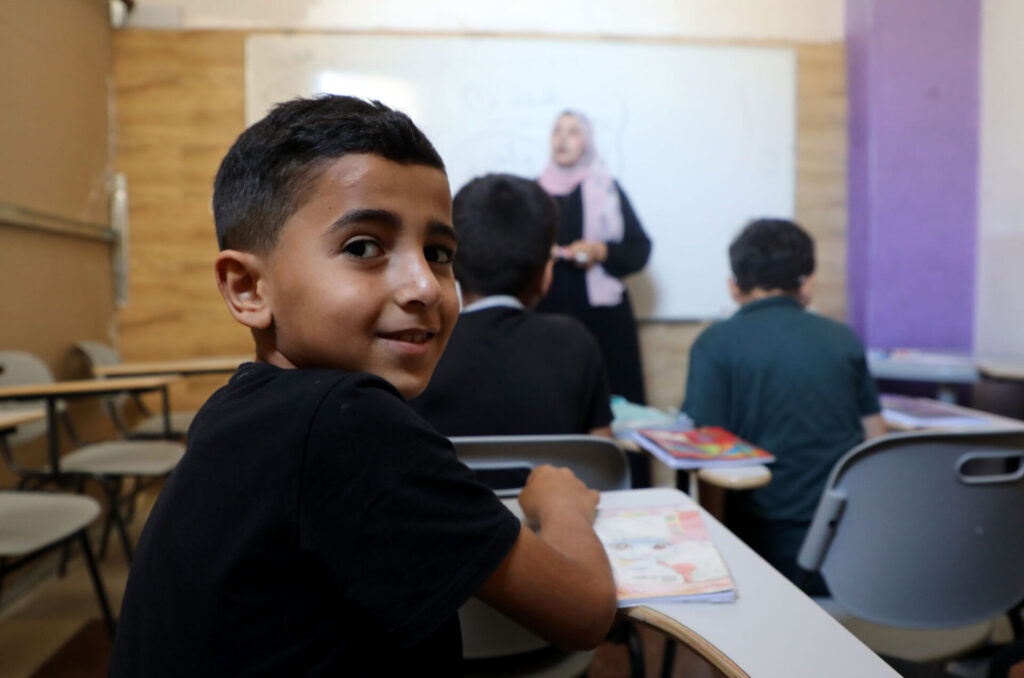Jul, 2023
Na'mat's journey to recovery began with an initiative providing dignified access to essential medications for vulnerable patients with chronic diseases in Lebanon.
Na'mat, a 70-year-old widow living in Tripoli, North Lebanon, was walking home from work on a hot, sunny day when she suddenly felt overwhelmed by fatigue and her vision blurred. She stepped into the nearest healthcare center, which provided her with medicine and water. After a few minutes, she started to feel better.
“God knows, if it wasn’t for those two pills, I think I would have died on that curb.”
Just as important, the clinic connected her with CARMAH, an initiative that makes chronic disease medications available at no cost to vulnerable Lebanese, Syrian and Palestinian refugees, and other communities. Soon after her visit to the clinic, Na’mat was registered as an official CARMAH patient to start receiving her much needed chronic medications.
Despite her age, Na'mat still works hard to make ends meet and support a household of 13 children, step-children and grandchildren. She had been a janitor at a local school until she broke her leg in an accident several years ago.
“After the accident, they immediately hired someone else and I lost my 10,000 lira daily income. That’s when things started to get worse.”
She found new work as a domestic cleaner but her health was declining. Often she was too tired to tackle even simple jobs like cleaning windows.
At the insistence of her sons, she went to see a doctor and was diagnosed with hypertension, high-cholesterol and diabetes. She was put on a series of medications.
Like everyone else in Lebanon, Na’mat has also been confronted with the enormously disruptive and turbulent events that have overtaken the country since 2019. The economic collapse and political unrest in Lebanon have hit everyone hard. But for someone like Na'mat the growing economic hardships have put the cost of essential healthcare beyond her means.
She feels the weight of supporting her extended family, several of whom have serious health issues.
“I have a responsibility on my shoulders: Mahmoud, my step grandson, is an orphan. Taking care of him is a divine duty and I am happy to do it.”
Doctors' appointments for Na'mat, once a manageable expense of 100,000 Lebanese pounds, skyrocketed to a staggering 1 million pounds. Before connecting with the CARMAH program, she had faced an impossible choice.
“All of my meds used to cost less than 100,000 pounds — do you know how much they are now? 6.9 million pounds. I haven’t bought all of them in a long time.”
Unable to afford her chronic medications, she was forced to stop taking her medicines except in emergencies or moments of extreme exhaustion. As a result, her health worsened.
Fortunately, in partnership with Americares, Anera's CARMAH project, made possible through funding from the US State Department's Bureau of Population, Refugees, and Migration, is a lifeline for individuals like Na'mat who find themselves trapped in a healthcare crisis.
CARMAH provides access to essential medications patients living with chronic diseases. CARMAH has stepped up to supply primary healthcare centers all across Lebanon with chronic medications, awareness sessions and logistical support, ensuring that even those in distant villages in Akkar and Baalbek are not left behind.


“If it wasn’t for those two pills, I think I would have died on that curb.”
We can do more with your help.
Tragic stories like Na'mat's are far too common. The reality is that many are forced to choose between life-saving medicine and the financial demands of daily life. You can help us do more by donating any amount now.
Na'mat's struggle is not an isolated incident. Many others find themselves caught in the face of unaffordable health care and a choice between life-saving medication or financial ruin. It is a harsh reality that highlights one of the most urgent needs of the people in Lebanon.
CARMAH stands as a testament to the power of collective action. Through their efforts, Anera and PRM are redefining healthcare accessibility in Lebanon. By ensuring that chronic medications reach those in need, this initiative offers a glimmer of hope and dignity.
Na'mat's story should serve as a reminder that no one should be left to suffer due to the staggering price of survival. It is a call to confront the inequities that prevent individuals from accessing the care they deserve. And CARMAH contributes to paving the way for a future where healthcare is not a privilege but a right.

